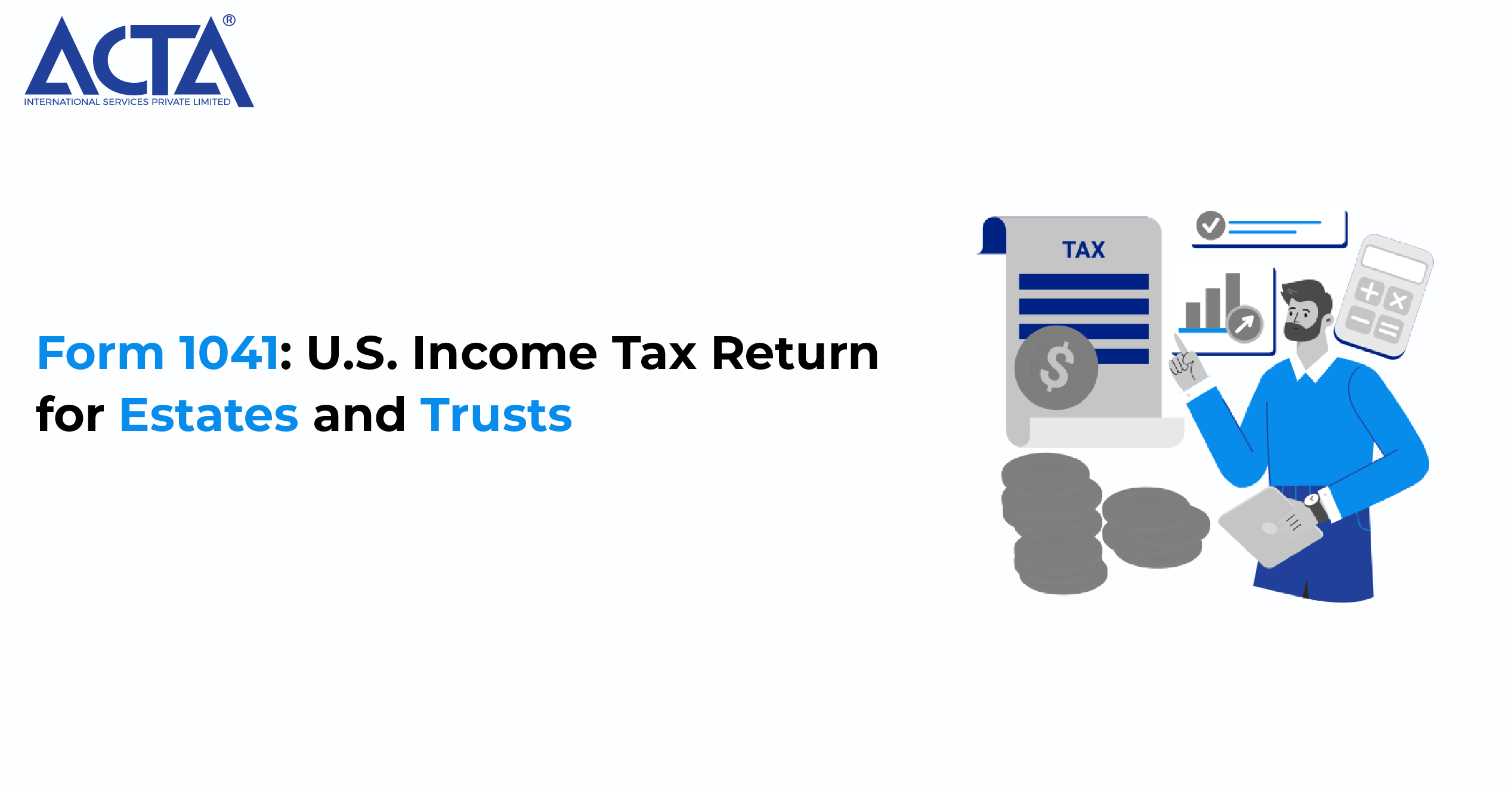
Form 1041: Tax Return for U.S. Estates and Trusts
Dec 15, 2023
By KARTHICK SUBRAMANIAM
Form 1041: Tax Return for U.S. Estates and Trusts
Form 1041, known as the U.S. Income Tax Return for Estates and Trusts, is a critical document in the realm of post-death financial matters. Filed by a representative, such as a trustee of the decedent's estate or trust, this form plays a significant role in managing the tax obligations that arise after an individual's death.
Overview of Form 1041
This form is integral to the Internal Revenue Service's (IRS) procedures. It's specifically designed for reporting income accumulated by an estate or trust following the demise of the individual until the point where assets are allocated to the beneficiaries. Notably, Form 1041 falls under Section 1041 of the Internal Revenue Code (IRC).
Key Aspects of Form 1041
- Purpose: The primary purpose of Form 1041 is to report any income generated by an estate or trust after the individual's passing, but before the transfer of assets to beneficiaries.
- Filing Responsibility: The duty of filing this form lies with the executor, trustee, or estate's personal representative.
- Filing Threshold: An important point to note is that filing this form is unnecessary if the estate or trust's annual gross income is less than $600, except when one of the beneficiaries is a nonresident alien.
- Complementary Forms: Certain scenarios may necessitate the attachment of additional forms or schedules to accurately report income or deductions.
- Deadline: The deadline for filing Form 1041 is typically the fifteenth day of the fourth month following the end of the tax year. It can be submitted either electronically or via mail.
The IRS website provides access to Form 1041 for download.
Detailed Breakdown and Filing Instructions
- Identification Requirements: The filer must identify themselves and provide details of the estate or trust, including acquiring a unique taxpayer identification number (TIN), generally an employer identification number (EIN).
- Reporting Income: Income sources, such as dividends, interest, rents, etc., are reported on specific lines in the form. Supplementary forms may be required for certain income types.
- Deductions: The form allows for various deductions from the gross income, potentially reducing the taxable amount. This includes money distributed to beneficiaries, for which a Schedule K-1 must be issued to each beneficiary.
- Tax Computation: The final tax calculation is done using Schedule G, and meticulous adherence to IRS instructions is advised to avoid errors.
Filing Process
- Due Date: The due date varies based on the tax year but generally falls on April 15 for calendar year filers.
- Extensions: Form 7004 can be used to request a filing extension.
- Electronic and Mail Filing: The form can be filed electronically or sent via mail, with specific addresses depending on the location and whether a payment is included.
Who Must File and Tax Implications
- Filing Requirements: Estates or trusts with an annual gross income exceeding $600, or with a nonresident alien beneficiary, must file Form 1041.
- Tax Liability: The tax liability rests with the estate or trust earning the income.
Non-Deductible Items
It's important to note that funeral expenses are not deductible on Form 1041 but are considered on Form 706 for estate tax purposes.
FAQs















